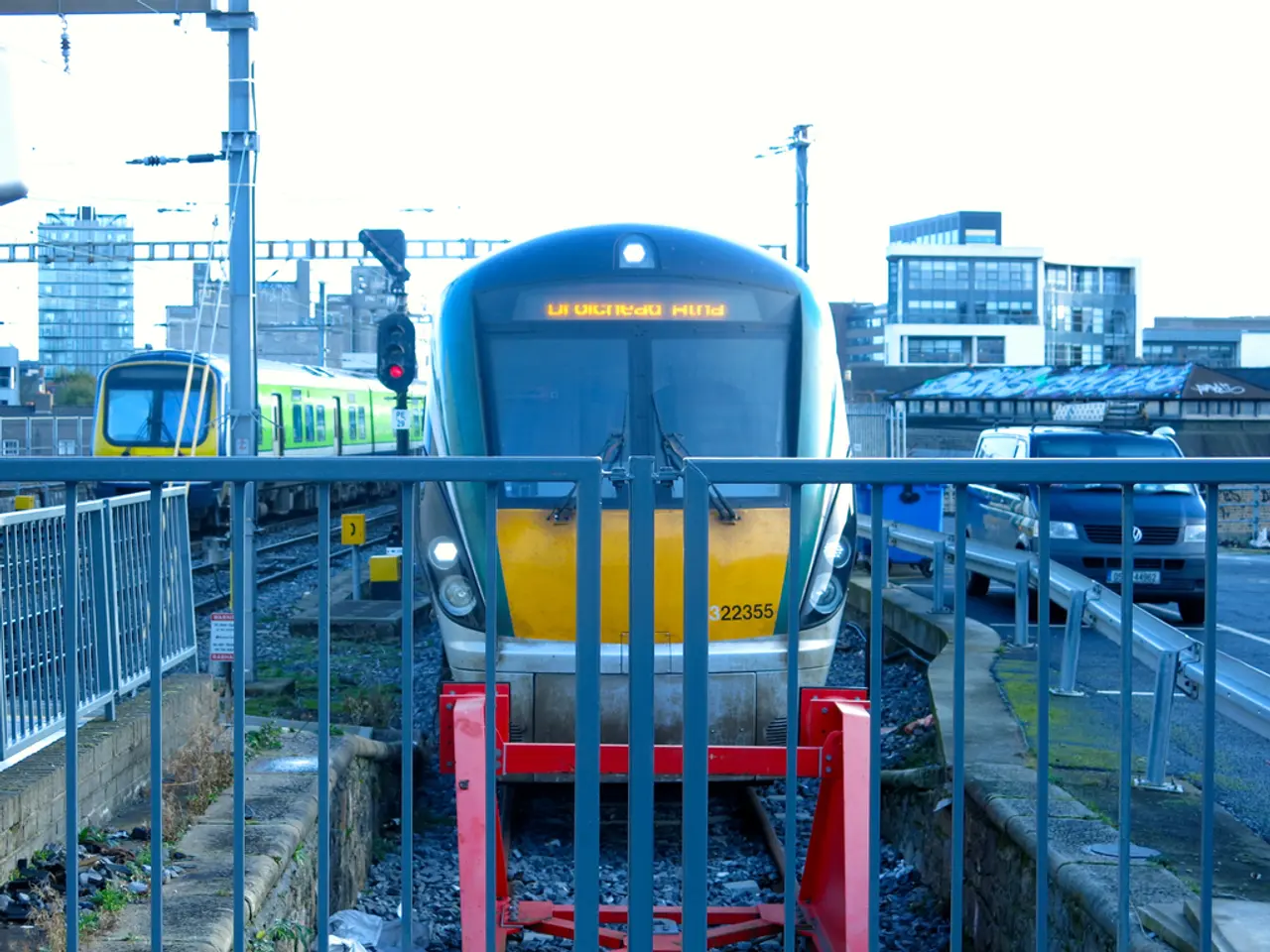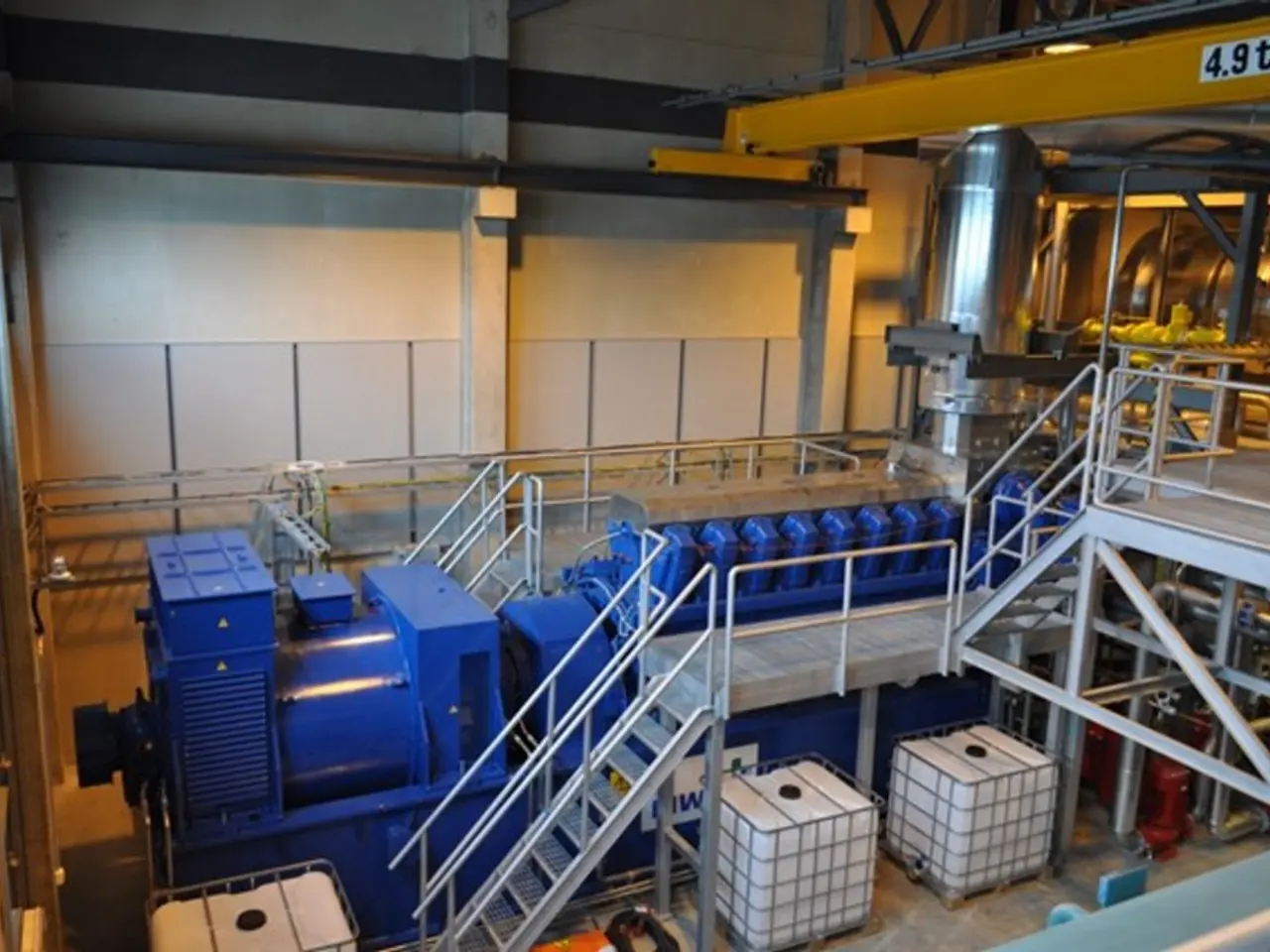Approximately a third of long-distance trains on the railway are experiencing delays
Planned Overhauls on German Railways Set to Boost Long-Term Punctuality
In 2026, German railways are embarking on a series of major overhauls aimed at modernizing infrastructure and improving punctuality, particularly on heavily used lines. The most significant of these projects is the renovation of the Hamburg–Berlin railway corridor, scheduled from August 1, 2025, to April 30, 2026.
During the nine-month closure, around 470 trains daily will be affected as the overhaul involves the renewal of over 180 km of track, replacement of around 200 switches, and the construction of six new grade-separated junctions. The project also includes upgrading signaling systems, installing new interlocking technology, and modernizing 28 traffic control centers along the route.
While the short-term impact of these works is expected to worsen punctuality due to full line closures and reliance on substitute bus services and rerouted trains, the long-term benefits are substantial. The modernizations aim to increase traffic flow flexibility and capacity, enabling overtaking of slower freight trains through new grade-separated junctions. This should significantly improve the reliability and punctuality of services once works are complete.
Another notable project is the opening of a new underground through station in Stuttgart in December 2026, alongside upgraded digital control and signaling in parts of the city. This will improve regional and long-distance rail services with minimized service interruptions due to a revised commissioning plan.
A complementary development linked to the completion of the Hamburg-Berlin renovations is the launch of a new long-distance train route from Prague to Copenhagen via Berlin starting May 2026. This will enhance cross-border connections and is part of a broader effort to improve European rail mobility.
In summary, the 2026 major overhauls focus on infrastructure modernization that will improve punctuality in the long run but involve significant short-term disruptions during the upgrade works, especially on the Hamburg-Berlin route. The railway records passenger punctuality, examining how many passengers reach their destination within a maximum delay of 14:59 minutes. After the overhaul, there should be several years of construction-free operation on the Hamburg-Berlin route.
It's important to note that more than 40 routes will be modernized by 2036. The overhaul on the Hamburg-Berlin route is not expected to result in a significant immediate improvement in punctuality. However, it is one of the measures taken by the railway to coordinate construction sites with the timetable.
Sources: 1. Deutsche Bahn 2. BBC News 3. Deutsche Bahn 4. Euractiv
In 2026, financial investments applied towards modernizing the German railways are expected to boost industry sectors such as transportation and logistics by increasing the capacity and traffic flow flexibility, thereby reducing delays and improving punctuality in the long term. Furthermore, the expansion of cross-border connections, like the new long-distance train route from Prague to Copenhagen via Berlin starting 2026, is a significant step towards finance-driven growth in the European transportation industry.




